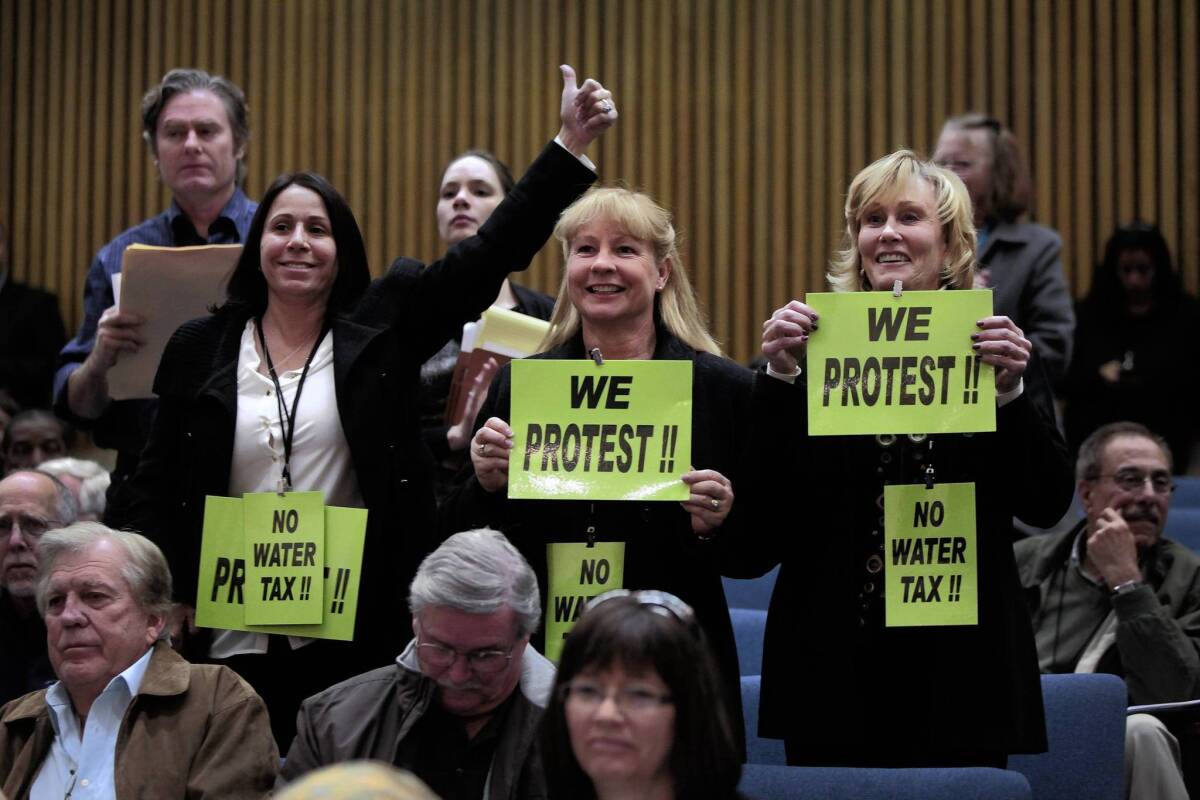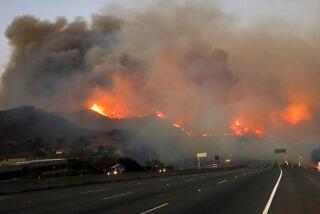L.A. County supervisors defer vote on storm water cleanup fee

- Share via
Facing overwhelming opposition to a proposed parcel fee to clean up storm water pollution, the Los Angeles County Board of Supervisors deferred a vote to place it on the ballot.
The proposed fee would be levied on all property owners within the county’s flood control district, raising an estimated $290 million a year to help cities and the county deal with widespread water quality issues stemming from polluted storm water and urban runoff — and the resulting threat of fines and litigation.
Nearly 200 people spoke to the board at a hearing Tuesday, a required first step before the supervisors could vote to put it on the ballot. Senior citizens and officials with schools and nonprofits said they were concerned that the proposed fee would strain their already tight budgets. The fee would range from about $54 a year for most single family homes to tens of thousands of dollars for large properties.
“To put another tax burden on our city would be way over the top,” said Donna Gannon, 59, a resident of Bell, a low-income city in southeast Los Angeles County that became notorious when many of its leaders were embroiled in a corruption scandal two years ago. “It is a financial difficulty for a lot of people in our area that are not working.”
Retiree Steve Colf, 68, said the property tax bill on a six-acre horse ranch that he and his wife own in Newhall would jump from about $600 to $1,100 a month under the new fee.
“We would probably lose the ranch,” he said.
The Los Angeles Unified School District submitted a protest, as did a number of the county’s smaller school districts. L.A. Unified Supt. John Deasy said in a letter that the district might reconsider its opposition if schools were exempted or got a fee reduction for investing in water quality improvement projects.
The board also heard from business groups concerned that the proposal contained no sunset date or list of specific projects, and from property owners angry about the hearing notice and protest form mailed to them. Many said they had thrown the notice away because it looked like junk mail.
A smaller number spoke in favor of the proposal, including environmentalists and city officials from some of the cities that would get a share of the money.
Simboa Wright, 34, said he works for the city of Los Angeles’ sanitation bureau and sees the problem of pollution from runoff firsthand while maintaining the city’s storm water catch basins.
“I see what goes in there, from trash to bottles of ammonia, bleach bottles and motor oil. And what happens if we don’t do this? What happens is it goes straight to our ocean, to the L.A. River and Santa Monica Bay,” he said.
If a majority of property owners had protested by Tuesday, the current fee proposal would have died. Only about 95,000 had submitted protests as of the Friday before the hearing, so the supervisors could have voted Tuesday to hold an election on the proposal.
Two of the supervisors, Don Knabe and Michael D. Antonovich, had been adamantly opposed to the proposed fee from the start. A third, Gloria Molina, said Tuesday she was “troubled” about aspects of the measure, particularly the public outreach process.
Instead they voted to keep the protest period for the measure open 60 more days and directed staff members to work on changes suggested by Knabe and Supervisor Zev Yaroslavsky, including adding a sunset date and list of projects and developing a credit for property owners who are already capturing and treating storm water. Department of Public Works spokesman Kerjon Lee said the department was already working on such a credit. Knabe also requested that staff members look into setting up an email protest process for property owners.
The supervisors also want them to look for other mechanisms to fund the needed clean-water projects.
More to Read
Sign up for Essential California
The most important California stories and recommendations in your inbox every morning.
You may occasionally receive promotional content from the Los Angeles Times.









